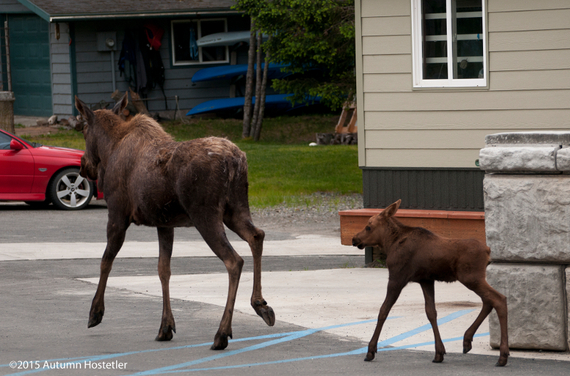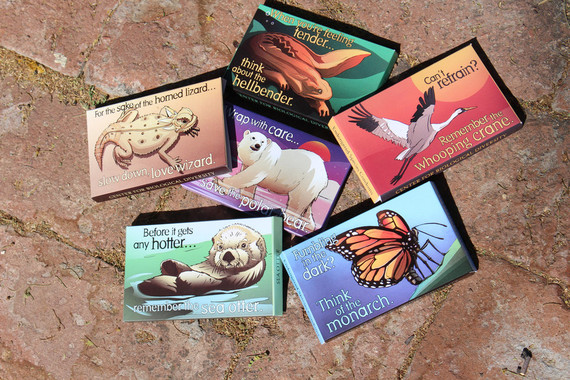The latest news on polar bears is enough to give anyone who cares about them -- or for the planet or our own fate -- a chill: One-third of the world's polar bears could be on the cold road to extinction within the next decade.
For many people, the idea of a world without polar bears is eerie, but distant, like looking at photos of abandoned buildings. It's troubling, but in a NIMBY (Not In My Back Yard) sort of way. Except the problem is in your backyard...and in your bedroom.
Unless you live in Alaska, you're unlikely to literally have a polar bear in your backyard. However, the factors driving polar bears extinct affect countless other species that are your neighbors.
Climate change, the greatest threat to polar bears, is expected to drive as many as one in six wildlife species to extinction -- a rate that will accelerate as the planet heats up. There's a lot of discussion these days about how to tackle the problem, from the pope calling for drastic reductions in carbon emissions and fossil fuels, to experts calling for less meat in the 2015 Dietary Guidelines for Americans. But whether the threat is global warming or habitat loss or pollution, the culprit is the same: Us.
The decisions we make as a society and as consumers to tackle our destructive production and overconsumption habits will determine the future of life on this planet. But if we're going to get to the root of the problem, we have to address human population.
While it's easy to blame overconsumption alone for our environmental problems, the math is simple: There are more than seven billion of us on the planet today. Compare that to other large mammals -- for instance polar bears, whose population stands around 20,000 to 25,000 worldwide -- and even if we were only meeting our basic needs, we'd still be well beyond our fair share of the planet's resources.
In other words, we're crowding out wildlife.
This is where your bedroom comes in: The decision whether to have children and how many is one of the biggest environmental decisions you'll make in your lifetime. If we continue our trajectory toward nearly 10 billion by mid-century, it will be impossible for sustainability policies to keep up. However, if we start improving access to family planning today -- along with expanding human rights, equality and education for women and girls -- it could provide at least 16 to 29 percent of the needed decrease in greenhouse gas emissions.
In honor of World Population Day on July 11 the Center for Biological Diversity, where I work, sent 10,000 of our free Endangered Species Condoms to states where the animals featured on the packages are really feeling the squeeze.
Yes, we sent condoms with polar bear art to Alaska, but also whooping crane packages to Florida, where these majestic birds are losing wetland habitat to development, and horned lizards to Texas, where farms and cities have overtaken open spaces and off-road vehicles are tearing up what's left. The condoms send a strong message that we can't ignore the impact of human population growth any longer.
There's wildlife all around us. You can see how animals from turtles to bobcats are struggling to survive in human habitats from the photos people have been posting on social media using the #CrowdedPlanet hashtag. (You can also post your own.)
Solutions are all around us, too. Whether it's cutting emissions or expanding reproductive healthcare, eating less meat or choosing a smaller family, the tools exist for us to create a better future for wildlife and people if we can inspire the political will and personal commitment to put them in action. Extinction isn't someone else's problem happening somewhere else.


